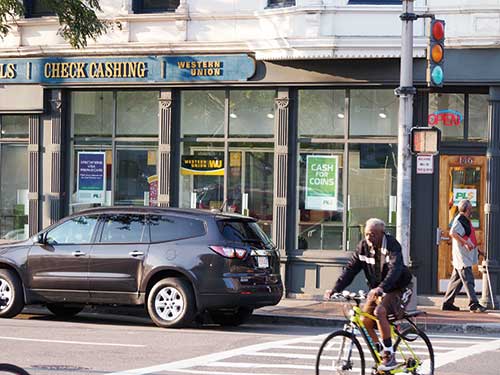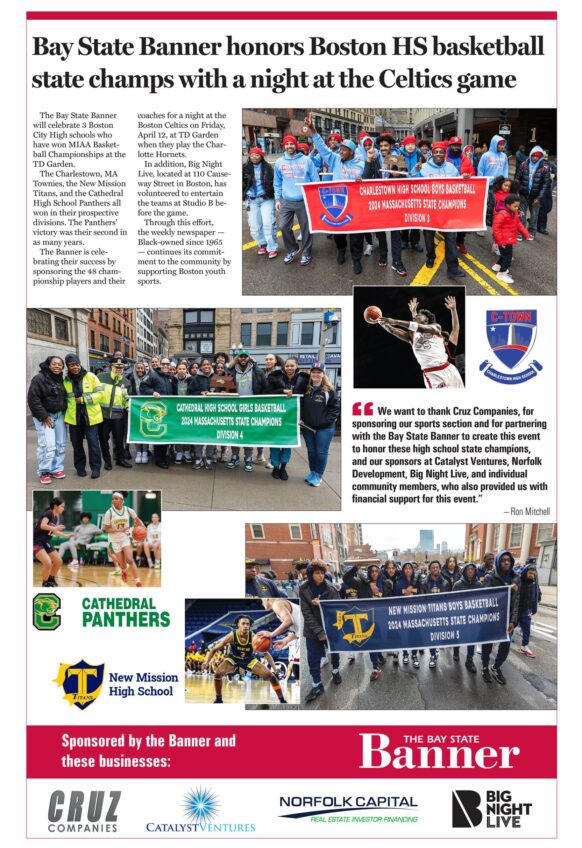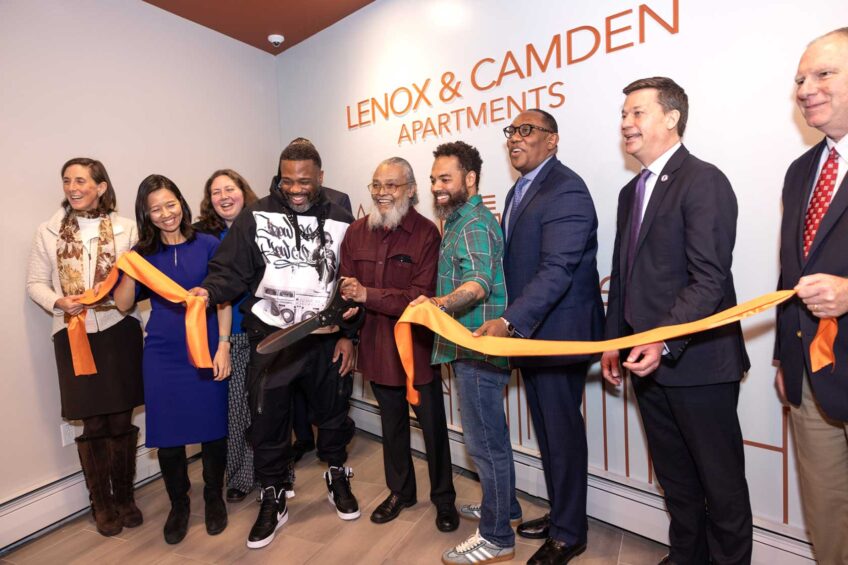What does it take to re-energize Dudley Sq?
Business changes spark questions on the district’s needs

The storefront at a prominent corner junction near the Dudley Square transit hub has transformed from an Afrocentric goods and convenience store to a check cashing operation.
The replacement of a culturally-focused store with a business that generally serves low-income clients with few other financial options raises questions about the shape Dudley Square’s business future will take. PLS Check Cashers already was in the area, but shifted location when A Nubian Notion shuttered.
According to Rodney Singleton, a resident long active in the community, a check casher does not help community members advance. He says the area would be better served by a hardware store, dry cleaners, bank or credit union.
“Why is it that our community always gets the check cashing storefronts? It’s either a dollar store, MetroPCS or check cashing. We don’t seem to aim high when it comes to storefronts or businesses in our community,” Singleton said.
He argues that there are enough local dollars to support other economic options and therefore tenants. He underscores his point by citing the tendency of many to spend outside the district for groceries, as well as the robust sales of Black Market, a recently opened space that regularly features a pop-up market of arts and Afrocentric goods.
David Price is the executive director of Nuestra Comunidad, the development corporation that rented out the corner space to PLS Check Cashing. He says he believes this particular check cashers is a good actor and provides a valuable service. Price did not consider other potential tenants, but says that doing so could have meant letting the space lie vacant — and thus feed a discouraging image for the business district.
“The retail market here is weaker than a lot of folks realize,” Price said. “There was an expectation that when the Bolling Building opened, there’d be tremendous demand by retail stores to open here. …[But] if you look around Dudley Square, about a month ago I counted eight vacant spaces — not counting those vacant spaces that were under agreement to have a new tenant come in.”
The debate raises questions that stakeholders have to address as they seek to revitalize the Main Streets District, which has declined in vitality since its heyday in the ’60s.
Purchasing power
Price believes that strengthening Dudley Square can include marketing aimed at recruiting desirable businesses, but that the first step is increasing the presence of would-be-customers with a range of incomes.
“It’s more than trying to come up with some ideal mix of businesses — you can’t wave a magic wand and get your preferred business to open here like Starbucks or Fridays. They’re going to come because there’s purchasing power,” Price said. “We need more purchasing power and that means people of all incomes.”
Joyce Stanley, executive director of Dudley Square Main Streets, said in a separate conversation that one barrier to attracting some businesses that local residents want, such as cafés, is the lack of a sufficiently large base of customers with the disposable income to regularly patronize them. The area’s high concentration of affordable housing skews the customer base toward those with low monthly incomes, but the planned 25-story Rio Grande Tower could supply an influx of middle-class purchasers, she said.
“Right now, until we get more market rate housing, we don’t have the incomes to support a lot of the restaurants and cafés and things that people want,” Stanley said. “Eighty percent of Roxbury is low-income housing. We still can have low-income housing, but they need to spread it throughout the city so as not to undermine the economy of a neighborhood.”
Another strategy involves encouraging patronage from non-residents. During the week, large employers in the area — such as the school department, court house and welfare office — bring in workers with a greater mix of incomes. Traditionally, the challenge has been to draw them out of the office to shop during lunch hours or in the evening. The entry of Haley House and Walgreens started to achieve this, along with the openings of Dudley Café and other local restaurants, Stanley said. To further this effort, Stanley now holds monthly food tours promoting the area’s offerings. On her latest tour, 20 people attended, with roughly half stating they had never patronized a store in Dudley.
Meanwhile, crime also has ticked up recently, with an increase in the number of people coming into the district to sell or use drugs. That scares off customers and, Stanley said, resolving it calls for more social services and drug treatment beds.
New approaches
Business success lies in adapting to current trends, not recreating the ‘60s, Stanley said. Dudley’s main customers tend to be employees or residents, often those who are elderly or above 40 years old. Meanwhile, despite nearby schools, members of the younger generation rarely patronize shops and tend to do their shopping online.
“If we’re developing for the future, we can’t be developing things like we did for the ‘60s,” Stanley said. “People talk about ‘back in the day’ in Dudley, but stores and things are not going to be like back in the day.”
Business Mix
Currently, Dudley is well supplied with barber shops, beauty shops, phone stores and computer repair places, but capturing a broader audience means providing unique cultural and art offerings and “destination” establishments such as restaurants, Stanley said.
One example is the Black Market. Singleton said in just a few weeks it has generated significant sales.
Stanley also pointed to a business sector that has been showing particular promise: culturally- or ethnically-tailored stores. This trend is seen in the 19 Somali businesses in Dudley that offer items ranging from fashion to meats.






